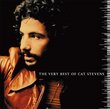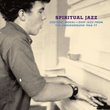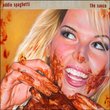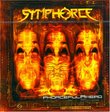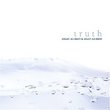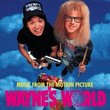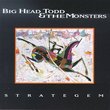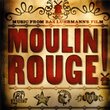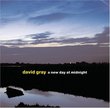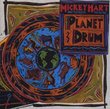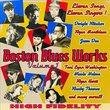| All Artists: Cat Stevens Title: Tea for the Tillerman (Limited Edition Digi-Pak) Members Wishing: 3 Total Copies: 0 Label: Polygram Records Release Date: 5/23/2000 Album Type: Limited Edition, Original recording reissued, Original recording remastered Genres: Folk, International Music, Pop, Rock, Classic Rock Styles: Europe, Britain & Ireland, Singer-Songwriters, Soft Rock, Folk Rock, Album-Oriented Rock (AOR) Number of Discs: 1 SwapaCD Credits: 1 UPC: 606949067328 |
Search - Cat Stevens :: Tea for the Tillerman (Limited Edition Digi-Pak)
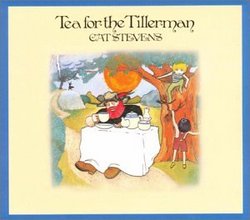 | Cat Stevens Tea for the Tillerman (Limited Edition Digi-Pak) Genres: Folk, International Music, Pop, Rock, Classic Rock
Cat Stevens tends to be lumped in with the early-'70s singer-songwriter school led by James Taylor and Carole King, but he actually fits in rather neatly with such wistful English contemporaries as Nick Drake, Syd Barrett,... more » |
Larger Image |
CD DetailsSynopsis
Amazon.com essential recording Cat Stevens tends to be lumped in with the early-'70s singer-songwriter school led by James Taylor and Carole King, but he actually fits in rather neatly with such wistful English contemporaries as Nick Drake, Syd Barrett, and Donovan. Tea for the Tillerman's "Wild World," "Into White," and "Longer Boats" indicate that he may have been a more gifted tunesmith than the lot of them. As with the best of the Brit folk-rockers, Stevens mixed melancholy with whimsy. Yes, he was prone to airy platitudes, but when he harnessed his eccentricities, as he did throughout this 1970 masterwork, you had something truly distinctive. A natural cult artist, à la Tim Buckley and Leonard Cohen, Stevens connected with record-buyers to the tune of 25 million units sold before he changed his name to Yusuf Islam, established an Islamic school, and raised a ruckus by supporting Ayatollah Khomeini's death decree against author Salman Rushdie. This remastered 2000 version of the 1970 recording, which was overseen by the artist, is a vast improvement over the earlier CD reissue. --Steve Stolder Similar CDs
Similarly Requested CDs
|
CD ReviewsTaking a Ride on The Cosmic Train Tim Brough | Springfield, PA United States | 02/08/2010 (5 out of 5 stars) "I've tended to think of "Tea For The Tillerman" as Cat Stevens' most thoughtful album. It came before the more spiritually minded Teaser and the Firecat, and contained more personal songs. Be it the sorrowful goodbye of "Wild World" or the fractured conversation between "Father and Son," Stevens was trying to find answers in song to questions that tend to confound we mere mortals. While Stevens may not have known the answers, he was writing gorgeous songs about the quest. To that end, there's a great deal of sadness across "Tea for The Tillerman." A somber Cat looks at the pain of "Sad Lisa," wondering what he can do to heal her. He frets about the bleakness of his future on "I Might Die Tonight." Bookending the CD are calls to save the future of our children. There's also joy in the songs "On The Road to Find Out" and the chanting "Longer Boats." His music was approaching the spiritual nature of his later work, but nonetheless, "Tea For The Tillerman" is British folk-rock at its finest and rates with Cat Stevens' best albums." Tea for Everyone Joseph Catanzariti | Grand Forks, ND | 02/13/2010 (5 out of 5 stars) "It seems so inconsistent with Cat Stevens' beautiful, timeless message of peace, togetherness, and spiritual exploration to use hyperbolic language in describing his art, but I cannot think of a better way to phrase what I feel is true: that Tea for the Tillerman is the most gorgeous and poignant album of popular music ever recorded, and that the world at large would be terribly remiss to not actively celebrate it as such. Here are eleven tracks of sublime song singing and story telling, replete with a transcendent, heart wrenching appeal for harmony between all people that make it something of a manifesto on the modern human condition. I like to set aside an entire evening when I want to listen to this album, as the simple power of its music and lyrics invariably flood my mind with such profound and vivid thoughts and images of what it means to be a person with a soul in the world, with free will and self determination and so much art and culture at his fingertips, that I cannot help but attempt to create art of my own. In this way, in its inherent inspirational gravity, Tea for the Tillerman is a perfect work of art.
Unique among albums of popular music, each track is wonderful and meaningful in its own right, and each could facilitate an entire album around its musical style and broader philosophical message. "Where Do the Children Play" is a passionate, raw appeal for love in this world, for people to look outside of their own interests for just a moment and to consider what it means to be a part of a society: that our actions have consequences, and that we leave legacies; and that we do not inherit this world from our fathers, but borrow it from our children. When those first notes float from the speakers, one is immediately inundated with the passion of Stevens' appeal in this track. "Hard Headed Woman" is a visceral appeal for love in this world, for genuine, meaningful romantic love, a love that is pure and lacks the self-conscious love of love that is championed by lesser popular music artists. This is a track about the human need for human contact, about the intense need that each of us has to be connected with another person. This is a song about symbiosis, and how the world has inexplicably commercialised love. "Wild World" is the Cat Stevens song that everyone knows and immediately recognises, and this not necessarily a bad thing, as this track more so than any other here contains the essence of the album, and of Stevens' message at large: that the complexity and tumult of the world, and its effect on individual people can be overwhelming in a myriad of ways; that human emotions are subject to the tremendous inertia loosed upon us by the mind-boggling scale of our society, and that it is so, so easy to become lost. We are so beholden to the established ideology of the culture in which we persist that any sort of personal action is necessarily contingent upon the proper navigation through the staggering miasma of institutions and traditions, as well as to the physical challenges of living a meaningful life. This song is a bold underlining of the philosophy of "Tea for the Tillerman," and a beautiful underlining at that. "Sad Lisa" is a paean that celebrates the fact that human attachment can result in powerful and profound enough relationships that paeans are possible; it is an archetypical love song in numerous superficial ways, but it is complex and rich enough to transcend that label and be worthy of the Stevens name. The name of the song is something of a poem in and of itself in its halted iamb form and choice of the cliche "sad" instead of a "deeper" word: for in the world of Cat Stevens there is little more human than the simplicity and subsequent profundity of the human capacity to experience sadness. "Miles From Nowhere," is a powerfully introspective track about the relationship between the human spirit and the human body. While perhaps a tired notion in ad of itself, the way Stevens approaches this idea is unique: for him, and for us in turn, this relationship is a microcosm of the relationship that been sung about up to this point in the album: that is, the relationship between individual people and the society in which they live. The images of mountains and valleys described by Stevens here cannot help but summon up the grandeur and sublimity of nature experienced by the Romantic poets, and the pantheism it inspired in them. Here is a track from the heart of a man throughly invested in his own quest for spiritual peace. "I think I'll take my time to get there" may be the most beautiful lines in the entire album, and they beautifully anticipate the message of its following track. "But I Might Die Tonight," as its title suggests, is an affirmation of the profound psychological effect that necessarily follows an intellectual acceptance of one's mortality. Shorter than all but one other track on this album, the brevity of this song serves to facilitate its message that this life is short, far too short, and that we must, as the Romans would say, carpe diem. In a way, this is a transitional track, as the bent of the album moves from the introspective nature of the philosophy of its first half, to a second half focused on action. An affirmation of the brevity of this life, and the dichotomous nature of the human psyche, which needs thinking as well as doing to be fully realised. If this album has a light track, then it is "Longer Boats," a song in which Stevens expresses that he "don't want no gods" on his lawn, "just a flower." In interviews (as well as in alternate versions of this track), Stevens has made it clear that this song is "about spaceships," that the "longer boats" are alien spacecraft. This is a fascinating departure from the rest of the album on the surface, but upon consideration, it is actually not: for what better way to understand humanity than from without? That is, for the first half of this album, Stevens and the listener have been exploring the human condition together, side by side, a la Dante and Virgil. But what would all of this look like to an outsider, one of the helmsmen of the "longer boats"? As Stevens warns, "they're coming to win us." Despite the sort of frightening undertones of this line, the pure excitement with which it is bellowed suggests a celebration of such an event. Perhaps it will take some outside intervention to bring people together, fully and finally. In this vein, if "Longer Boats" is a fun song, "Into White" is a poetic track that again tackles the fleetingness of life. It does, so however, with clearly distinct intentions: this song is a poem that describes, with beautiful language, a specific scene, for the first (but not for the last) time in the album. Thus, the focus has turned from philosophy to culture: to what it looks like to be a part of this world, and that despite the intensity of it all, that there is beauty, and that the ultimate source of this beauty is simplicity. The "red legged chicken" of this track is perhaps something that the explorer from "Miles From Nowhere" has found in his quest to find himself, and as such, he has found beauty perhaps where he was least expecting: in a quiet domestic scene, where one can be with one's self and one's meditations. The poetry of the scene is captivating. "On the Road to Find Out," I must admit, is my favourite track on this album. This is a song that vociferously articulates the generally ineffable intensity of the human predisposition to travel and explore despite a superficially comfortable and meaningful existence. This is the song in which Stevens explains to the individual members of modern society that their inexplicable restlessness despite material success and the achievement of social expectations is a result of their humanity; that even though they may live in a "happy home," they still need to get out and explore and find themselves, despite the odds. Here is the message from "Wild World" being repeated, but also phrased slightly differently: for if "Wild World" is a track that suggests that the complexity of society makes spiritual exploration a daunting, awe-inspiring task, "On the Road to Find Out" is a track that suggests that this difficulty is a good thing; that nothing worth having is easily achieved, and that these sorts of experiences are what define us as individual parts of a global community. We must travel, we must explore to find what is in our minds, what is already there; it is a long and often painful journey, but it is desirous and necessary and wonderful, in the end, if we are willing to learn. This song is the narrative and philosophical complement to "Miles From Nowhere," and the tiles of these two tracks together make something of a sentence that nearly sums up the general argument of the album on the whole: "[We may all be] Miles From Nowhere [right now, but, God willing, we are] On the Road to Find Out." Here is the action to the thought; the Vitctorian to the Romantic sentiment. "Father and Son," is probably the most beautiful expression of the transient nature of humanity and the timeless message of the profundity of the relationship between successive generations ever recorded in popular music. This song catches the drift of the songs that have come before it here and puts it into the most meaningful and universal situation imaginable: the relationship between a father and his son. The father, defeated by this world, comfortable with his things (the message from "On the Road to Find Out to a tee; the son is clearly the singer of this previous track) explains to his son that, in the end, he shall settle down; that this is what people do. The son, tired of this lesson and the apparent investment that everyone around him inexplicably has in it, passionately sings "but it's them they know. Not me." Here is the whole tragedy of humanity: that most of us are just passively receptive to the message seemingly lovingly delivered us by our forebears, and fail to explore ourselves, to get out own answers. And it is wholly irrelevant if we arrive at the same answers, for the beauty and necessity of this sort of exploration lies not in its conclusion, but in the journey itself; in our experience of the "wild World," as we stand "Miles From Nowhere," but are ever "On the Road to Find out." Hopefully along the way we remember to ask ourselves "Where Do the Children Play," and thus remember that there is so, so much more to this life than achieving material comfort. After all, we "Might Die Tonight," and what will the goods mean then? This life is about personal spiritual exploration, regardless of what those in charge would like to make it seem what it is about. The concluding track, "Tea for the Tillerman," is a gay, ecstatic celebration, the only proper finish to any artistic project that actively engages the question of the human condition. For while the raw data may be depressing, and while there is suffering and misery and unjustness and preaching and prattling and a focus on materialism, "While the sinners sin, the children play" Stevens sings, beautifully, repeating this line to close out the album. "While the sinners sin, the children play, for this happy day, for this happy day." This track is an exclamation mark at the end of this album, and turns from it a brooding, melancholy experiment to a piece of art that is pure joy; that is a celebration of humanism; that is a love song for everyone. For as long as a piece of art like this can exist, and as long as themes can be explored and these questions can be asked, then this life is worth celebrating. I truly believe that Tea for the Tillerman is the most gorgeous and poignant album of popular music ever recorded, and that it is the most meaningful manifesto on the modern human condition ever articulated by a popular artist. Human beings owe it to themselves to take the thirty six minutes that it takes to hear this masterpiece, period. I cannot think of a more beautiful and perfect artistic achievement than this album, and though that may seem like easy praise and hyperbole, it is simply the best way I can conceive of to articulate my feelings toward this piece. If you are even a little bit lost, this piece will simultaneously tell you that it's perfectly fine to be lost, that, actually it's great to be lost; and that you must get out there and explore this world, regardless of how intimidating it is and how comfortable everyone tells you that you should be with all you have. Listen to Tea for the Tillerman and be a better, richer, and more genuine soul than you were before. Listen to Tea for the Tillerman and celebrate the dizzying wonder of humanity. Listen to Tea for the Tillerman and love a little bit more than you did before. Listen to Tea for the Tillerman, and take its advice." |

 Track Listings (11) - Disc #1
Track Listings (11) - Disc #1